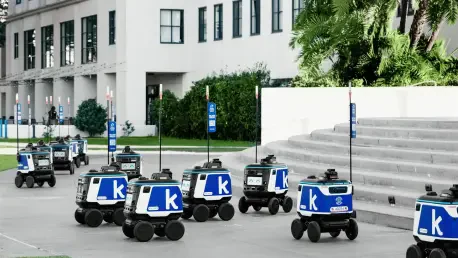What happens when a city’s AI system mistakes a car backfiring for gunfire and sends armed response units into a peaceful neighborhood, creating unnecessary panic and potential danger? Such alarming possibilities are becoming reality as smart cities integrate artificial intelligence into critical systems like public safety and traffic management. This scenario underscores a pressing challenge: ensuring that technology serves communities without compromising trust or fairness. A groundbreaking ethical framework now offers hope for balancing innovation with responsibility, promising to reshape how urban technologies operate.
The Urgent Need for Ethics in Smart Cities
The rapid growth of smart cities, where AI optimizes everything from streetlights to emergency responses, brings undeniable benefits. However, beneath the surface of efficiency lies a maze of ethical concerns. Surveillance cameras that monitor every move can erode privacy, while biased algorithms risk unfairly targeting certain groups, amplifying social inequities. These issues highlight why ethical guidelines are not just a luxury but a necessity for maintaining public confidence in technological advancements.
Beyond privacy, the potential for error in AI decision-making poses significant risks. A misinterpretation of data could lead to unnecessary police interventions or delays in critical services like ambulance dispatches. Cities cannot afford to ignore these dangers, as they directly impact the safety and well-being of residents. The stakes are high, and the demand for a structured approach to address these challenges has never been more apparent.
Ethical Challenges in the Age of Urban AI
As urban centers worldwide adopt AI to tackle issues like gridlock and crime, the advantages are clear—consider traffic systems that adapt in real time to speed up emergency vehicles. Yet, these innovations often come at a steep cost to personal freedoms. Constant monitoring through facial recognition or predictive policing tools can create a chilling effect, where citizens feel watched rather than protected, undermining the very purpose of such systems.
Moreover, the lack of accountability for technological missteps compounds the problem. When an AI system errs, who bears the responsibility? Without clear answers, trust between communities and city authorities frays, especially in marginalized areas disproportionately affected by flawed data or over-policing. This growing tension reveals a critical gap in current smart city frameworks, one that demands immediate attention to prevent long-term harm.
Introducing the Agent-Deed-Consequence (ADC) Model
A transformative solution emerges with the Agent-Deed-Consequence (ADC) model, crafted by researchers at North Carolina State University. This framework dissects moral choices into three key components: the intent behind an action (agent), the action itself (deed), and its impact (consequence). By embedding these elements into AI through deontic logic—a method for coding obligations and permissions—this model guides technology to make decisions that align with ethical norms.
Practical applications of the ADC model show immense promise. For instance, in traffic management, it can prioritize a legitimate ambulance request over a fraudulent attempt by another vehicle to jump the queue. Additionally, it addresses surveillance overreach by ensuring systems only act on verified threats, reducing false positives that could harm innocent individuals. This structured approach offers a blueprint for fairness in automated urban systems.
Voices from the Field on Ethical AI Standards
Experts like Veljko Dubljević and Daniel Shussett stress that technology must reflect the moral compass of the society it serves. Their research points to a broader consensus among tech developers and policymakers: ethical AI is not an afterthought but a foundational requirement. Without it, smart city tools risk alienating the very people they aim to assist, creating a rift that could stall progress.
Industry trends further support this view, with a rising push for ethical design in urban tech. Challenges remain, however, as implementing such standards in diverse, complex city environments is no simple task. Balancing cultural values, legal constraints, and technological limits requires collaboration across sectors, a point echoed by thought leaders advocating for proactive solutions over reactive fixes.
Actionable Strategies for Ethical AI Integration
Turning the ADC model into reality demands concrete steps tailored to urban needs. Developers should start by engaging local communities to define ethical priorities, ensuring AI behaviors resonate with resident values rather than imposing top-down rules. This participatory approach helps align technology with the unique fabric of each city, fostering acceptance and trust.
Next, thorough testing through simulations is essential to uncover potential flaws before deployment. A single oversight could have cascading effects, so virtual trials must mimic real-world scenarios to stress-test ethical decision-making. Additionally, policymakers need to craft robust accountability measures, ensuring that errors do not disproportionately burden vulnerable groups. These strategies together form a practical roadmap for cities aiming to harmonize efficiency with justice.
Reflecting on the Path Ahead
Looking back, the journey to integrate ethics into smart city technologies revealed both the immense potential and the profound risks of AI. The unveiling of the ADC model marked a pivotal moment, offering a structured way to navigate moral dilemmas in urban automation. It was a reminder that technology, unchecked, could easily stray from serving the public good.
Moving forward, cities must commit to rigorous testing of such frameworks, scaling successful simulations into real-world applications. Collaboration between technologists, policymakers, and communities remains vital to refine these tools over time. Beyond immediate implementation, the broader adoption of ethical AI principles could set a global standard, ensuring that smart cities evolve as spaces of both innovation and integrity.









